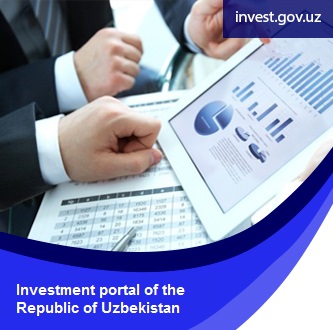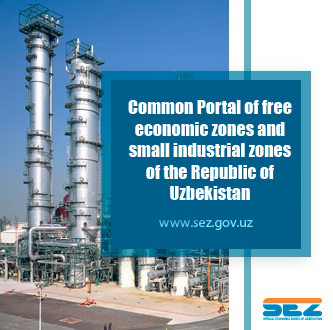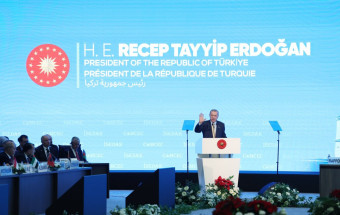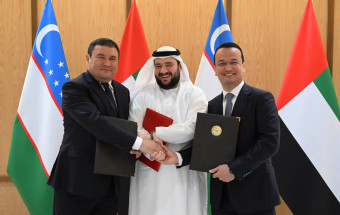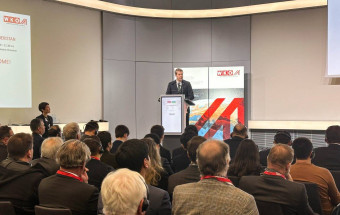The 22nd meeting of the Uzbek-Russian Intergovernmental Commission on Economic Cooperation was held
On October 27, the 22nd meeting of the Intergovernmental Commission on Economic Cooperation between the Republic of Uzbekistan and the Russian Federation was held in Moscow. The meeting was co-chaired by Deputy Prime Minister – Minister of Investments and Foreign Trade of the Republic of Uzbekistan S. Umurzakov and Minister of Economic Development of the Russian Federation M. Reshetnikov. Its work was also attended by heads of key ministries and departments of the two countries.
The agenda covered a wide range of issues of trade, economic, investment, industrial, transport, logistics, cultural and humanitarian cooperation between two countries.
It was noted that due to the efforts of the Heads of the two countries, the relations between Uzbekistan and Russia are at unprecedented high level and characterized by sustainable dynamics of development, which forms the preconditions for deepening cooperation in priority areas.
The sides underscored the significant progress achieved in the economic partnership between the two countries. The number of enterprises established in Uzbekistan with the participation of Russian capital has grown 2.5 times over the past 4 years and exceeded the mark of 2,000 units, while over 200 Uzbek-Russian enterprises have been created in the country during 9 months of this year. More than 150 joint projects worth over USD 14 billion in petrochemicals, mining metallurgy, energy, healthcare and pharmaceuticals, construction materials, textiles as well as fruit and vegetable processing are currently underway in Uzbekistan. The effective activity of the joint Project Office established between the Ministry of Investments and Foreign Trade of the Republic of Uzbekistan and the Ministry of Industry and Trade of the Russian Federation, whose function is to generate promising investment proposals and to form new projects for subsequent implementation, was noted. It was announced that at the moment experts and specialists of the Project Office are working on a new portfolio of more than 180 projects worth about $9 billion. Productive work is underway to establish new ties between the Uzbek and Russian business communities including mutual business missions, forums, trade exhibitions and other joint events. For instance, the Innoprom industrial exhibition held in Tashkent this year resulted in the signing of more than 300 agreements worth more than $3 billion.
Positive trends in the development of mutual trade were discussed. The sides emphasized the considerable potential for further expansion of interaction in this sphere. The "Agroexpress" project on accelerated delivery of agricultural products in refrigerated trains may become a driver of Uzbek-Russian trade development. It is planned that the first pilot delivery of fresh fruits and vegetables from Uzbekistan will take place in mid-November this year. "Our common task is to have 1 million tons of products delivered to our countries by rail by 2030," M. Reshetnikov noted.
Development of interregional cooperation was also one of the key areas of the agenda. It was declared that delegations of heads of seven regions of Uzbekistan have visited 20 Russian regions in the last two months and had substantive negotiations on prospects for further cooperation. It was agreed that in order to further expand interregional ties, mutual additional visits of heads of regional administrations of Russia and Uzbekistan would be organized in the near future to study new industrial cooperation projects and conclude trade contracts.
Special attention was also paid to cultural and humanitarian cooperation, in particular, to interaction in the field of education. It was noted that 15 branches of Russian higher education institutions are currently operating in Uzbekistan. On October 1 this year, a branch of the VGIK (All-Russian State University of Cinematography named after S.A. Gerasimov) was opened in Tashkent, while two more universities, the Russian State University of Design and Technology named after A.N. Kosygin and the Moscow State University of Geodesy and Cartography are expected to open branches in the near future. The issues of training highly qualified personnel, cooperation in the research and development sector, as well as holding a number of joint events such as the Educational Forum, Media Forum, the Days of Uzbek Culture in Russia and others were discussed in this context.
During the meeting, the heads of ministries and agencies of the two countries outlined promising visions of further development of cooperation in the context of industries and areas in the form of presentations. The proposed initiatives were considered in detail and the format of cooperation for their promotion and practical implementation in the context of investment, trade, development of industrial cooperation, transport and transit, cultural and humanitarian cooperation and tourism was defined.
In particular, significant prospects for deepening cooperation in the fields of energy, pharmaceuticals and mechanical engineering were outlined. Russian companies will take an active part in modernizing Uzbekistan's mining and metallurgical enterprises and in implementing joint machine-building and machine-tool industry projects. Also, it is planned to gradually increase the production of automobiles and agricultural machinery on the basis of Russian technologies. Opportunities to attract Russian investments for modernization of energy generating capacities in Uzbekistan and implementation of projects in the field of alternative energy were considered.
An agreement was reached to activate the work of all 9 relevant IGC sub-commissions consisting of the heads and specialists of the relevant ministries and agencies of the two countries - it was agreed that the heads of sub-commissions will soon approve individual plans of practical measures for the next year for the qualitative implementation of all agreements reached, reflecting the expected results, specific mechanisms, responsible executors and deadlines. The issue of creating 2 new sub-commissions on innovations and digital technologies in the field of labour migration was also agreed.
Following the meeting, a final protocol was signed, reflecting the key agreements reached during the event.



